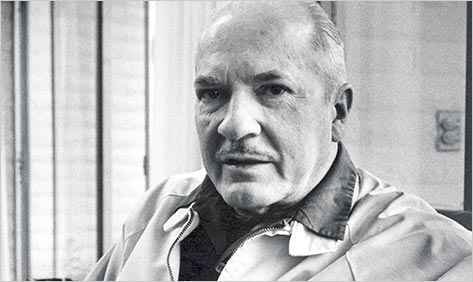Robert Heinlein believed that in a democratic society everyone should participate in the protection of the nation's sovereignty. Heinlein's everyone is a universal everyone. Men and women alike, so Heinlein believed, should have a mandatory term of service in the military. Heinlein's Starship Troopers follows this mandate.
Mandatory Military Service
Robert Heinlein's concept of mandatory military service isn't all that radical of an idea. In fact, a couple dozen countries currently require mandatory military service.
Here's a list of countries that do so:
Armenia, Austria, Belarus, Azerbaijan, Brazil, Burma, Cyprus, Denmark, Egypt, Finland, Greece, Iran, Israel, North Korea, South Korea, Mexico, Norway, Russia, Singapore, Switzerland, Republic of China, Thailand, Turkey, Ukraine, United Arab Emirates.
If you look up a list of the worst countries to live in, you won't find these countries listed there. Although, my confidence in this list is shaken by virtue of not including North Korea, clearly one of the most oppressive countries on the planet. However, equal service requirements among citizens should, at the least, ensure a functioning society.
Mandatory Service and Universal Education
Universal service strengthens a society. Universal services translate to universal education. Military service results in educating qualified persons for technical positions so that they are more effective during their term of service. Clearly, this is beneficial to society. Once active service is over, veterans are ready to enter the workforce. Not everything is equal here. Some training results in higher salaries than others. Pilots, for example, get free flight training during their service and re-enter civil society qualified to fly commercial airlines, a very lucrative job. However, most all veterans finish their term of service with bankable skills or are at least viewed as extremely hireable because of their service record.
The Individual and Mandatory Service
Back to Robert Heinlein. Heinlein's argument is that if individuals are personally involved in the life of their society through mandatory armed service, their interest and investment in the life of their society is raised, resulting in citizens that get involved and take responsibility for local, regional, and federal levels of government.
This means several things. First, Heinlein's model citizens are aware of the world around them, including political, economic, and social issues of the day. They support candidates that they feel can solve contemporary problems in their society. They vote. If no suitable candidate for a particular office appears, they take the responsibility to find someone that can fill the need.
And citizens that do their part to ensure the sovereignty of their nation are keyed to their own and their family's well being. They work. They also look to get involved in the civic affairs of their communities.
Creating high-functioning, well-trained, responsible citizens is Heinlein's social ideal. In practice, a great number of the armed servicemen that experience live combat come back shell shocked, suffering post-traumatic stress disorder. Sadly, these individuals are so rattled from what they've seen and experienced, they are sometimes unable to ever again meaningfully contribute to society. Heinlein's ideal vets are programmed to click bootheels together, turn on a dime, and march forward, whether into the heat of combat or the relentless regularity of a 9 to 5.
Creating high-functioning, well-trained, responsible citizens is Heinlein's social ideal. In practice, a great number of the armed servicemen that experience live combat come back shell shocked, suffering post-traumatic stress disorder. Sadly, these individuals are so rattled from what they've seen and experienced, they are sometimes unable to ever again meaningfully contribute to society. Heinlein's ideal vets are programmed to click bootheels together, turn on a dime, and march forward, whether into the heat of combat or the relentless regularity of a 9 to 5.
But we Live in a Plutocracy! It's not Egalitarian!
But real veterans lose faith in the systems that send them to kill the populations of second and third world countries. Real veterans realize that there can be no egalitarian society when billionaires are the puppet masters of society, making their poor puppets dance through middle eastern wastelands to shore up oil rights, trade deals, and investments.
Survival of the Fittest
Robert Heinlein's egalitarian society wasn't egalitarian at all. In Heinlein's 1940s and 50s, he still believed in the American myth of pulling one's self up by their bootstraps. Egalitarianism for Heinlein was fused into a survival of the fittest race for power, status, and capital. Running everyone through wars with high attrition rates was a test to see who was worthy of the great rewards of the capitalistic strip-mining of the worlds the military conquered.
Egalitarianism or Libidinal Fantasy
And including women was merely a way to slake Robert Heinlein's lust. While it might at first look like Heinlein was advocating for women's rights, a more sustained look at his fiction reveals that women's military service was just a way to ensure that he could write a lot of steamy scenes. But, if we want to overlook Heinlein's misguided motivation, his inclusion of women in military service was revolutionary, a positive forward step to creating egalitarian societies.
Still, egalitarianism is impossible until everyone has the same opportunities. As long as our so-called democratic government remains a plutocracy--government run by the wealthy--there can be no egalitarian society, no meritocracy--government run by those selected on the basis of their abilities.
The Wealth of Nations
But here's a question to ponder. Would a government that wasn't controlled by wealth be sustainable? Probably not. The wealth of a nation ensures its stability. In the US, we've long sacrificed the weak for the greater good of maintaining a sovereign nation. We pay lip service to freedom and equality, but the GNP gets the last word every time.
For more on Starship Troopers, read Galen Strickland's review at Templeton Gate

